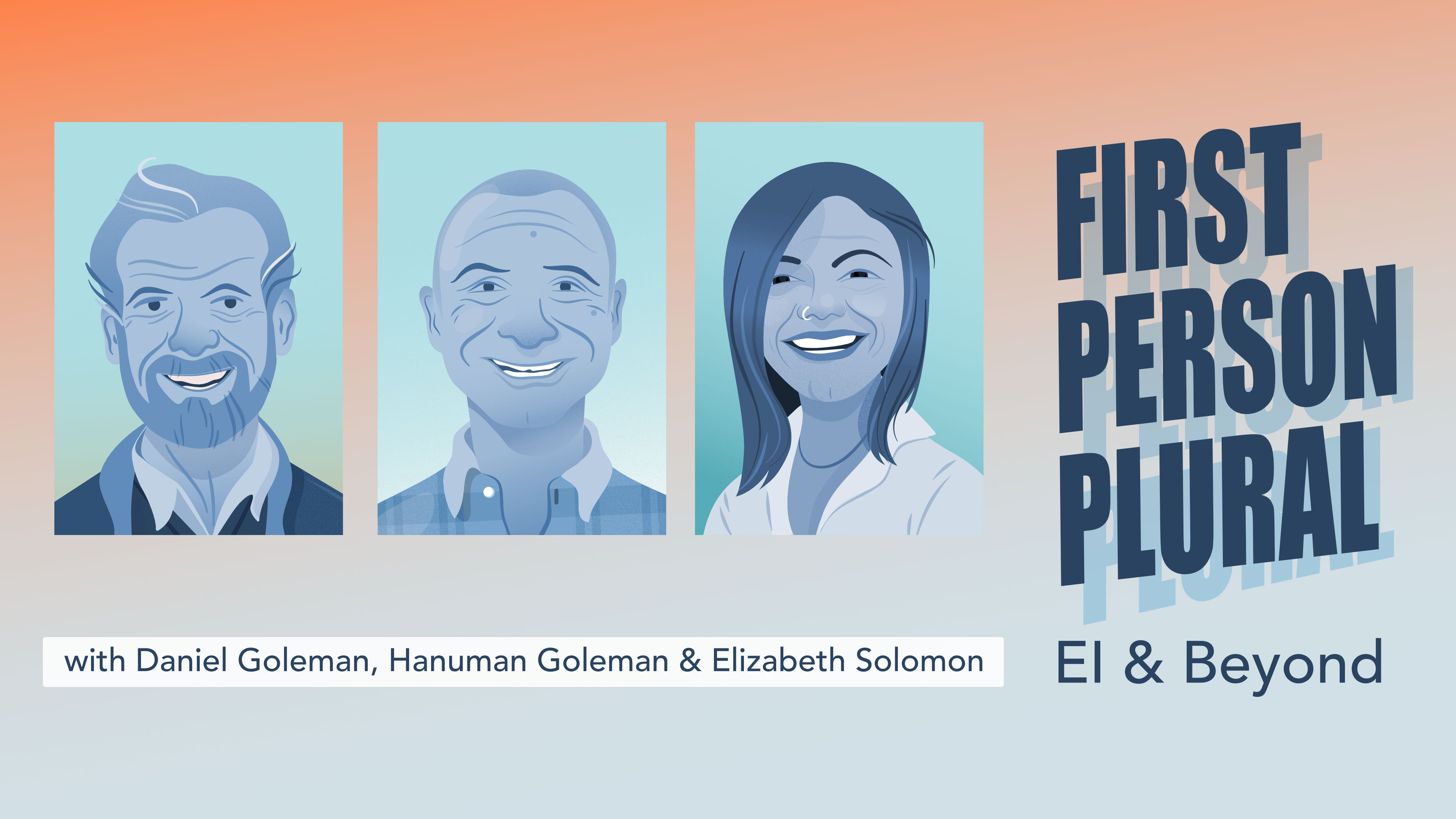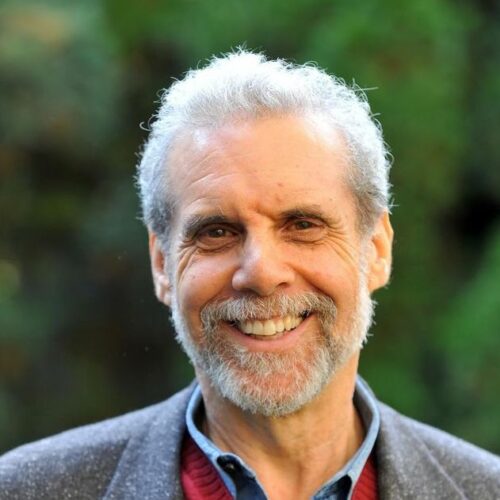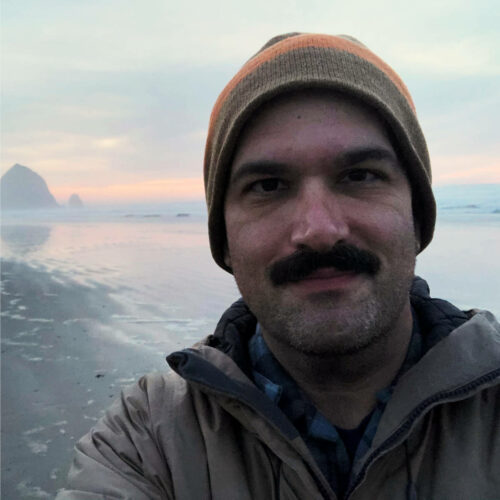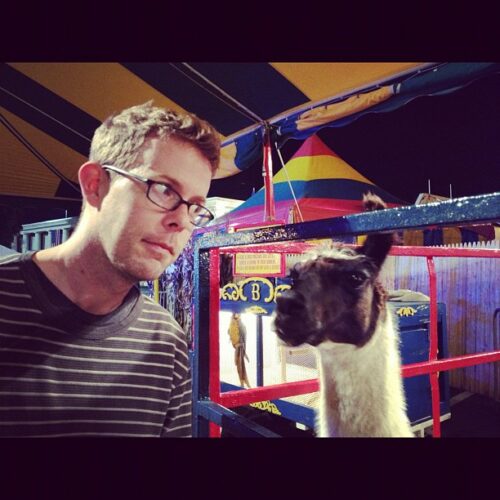S1E3 When Achievement Undermines Our Larger Goals
In many ways, being driven to achieve our goals is a good thing. But what happens when being a high-achiever causes us to lose sight of our larger objectives like being kind or leading a team? In this episode, the author of “How to Be Happy at Work: The Power of Purpose, Hope, and Friendship,” Annie Mckee, PhD joins Dan for a conversation around the ups and downs of achievement orientation.
Our Guests
Annie McKee, PhD
Annie McKee, PhD is a best-selling author, respected academic, speaker and advisor to top global leaders. Her latest research was published in her new book, How to Be Happy at Work: The Power of Purpose, Hope, and Friendship, published by Harvard Business Review Press. As a coach to executives in Fortune/FTSE 500 companies and organizations around the globe, she uses a person-centered approach that helps leaders develop their emotional intelligence, enhance their strategic thinking abilities, and build resonant cultures.

Resources
The following resources were referenced in today’s episode:
- How to Be Happy at Work: The Power of Purpose, Hope, and Friendship by Annie Mckee
- Primal Leadership: The Hidden Driver of Great Performance by Daniel Goleman, Richard Boyatzis and Annie Mckee
- The Happy Secret to Better Work Ted Talk by Shawn Acher
- Leadership Run Amok: The Destructive Potential of Overachievers by Scott Spreier, Mary H. Fontaine, and Ruth Malloy
- Emotional Alchemy by Tara Bennett-Goleman
- Yerkes–Dodson Law
- Imposter Syndrome
- Blog: What is emotional intelligence (EI)?
- Building Blocks of Emotional Intelligence: 12 Leadership Competency Primers by Daniel Goleman et al.
- Support our podcast by becoming a monthly Patron.
Past episodes referenced:
Subscribe to the podcast:
Subscribe now and sign up for our newsletter to get notified as new episodes are released.
Have feedback? We want to hear it! Submit a Voicemail.
Episode Credits:
This show is brought to you by our co-hosts Daniel Goleman, and Hanuman Goleman and is sponsored by Key Step Media, your source for personal and professional development materials focused on mindfulness leadership and emotional intelligence.
- Special thanks to Michael, Mateya and Isis, whose voices you heard at the top of the show.
- This episode was written and produced by Elizabeth Solomon and me Gabriela Acosta.
- Episode art and production support by Bryant Johnson.
- Theme music by Amber Ojeda.
Transcript
Isis: Achieving means if you have a goal, then you would finish that goal and get it done. One of my goals is being a dog walker when I grow up.
Elizabeth Solomon: Why do you want to be a dog walker?
Isis: Because I love dogs.
Elizabeth Solomon: What does it mean to achieve something?
Mateya: Like get a reward basically.
Elizabeth Solomon: What kinds of rewards do you get for achieving?
Mateya: Basically like a high five or something like that.
Elizabeth Solomon: What does a successful life look like?
Michael: Like you do what’s happy to you and not do bad things.
Elizabeth Solomon: What’s something you’re proud of that you’ve achieved?
Michael: Getting birds.
And why does that feel like an achievement?
Michael: Because it’s something I’ve wanted for a long time.
Isis: A successful life looks like you do something the way you want to if you do it.
Hanuman Goleman 1:16
Welcome to first person plural, emotional intelligence and beyond. I’m Hanuman Goleman. And I’m here with correspondent Elizabeth Solomon. Hi, Liz.
Elizabeth Solomon 1:26
Hi, Hanuman.
Hanuman Goleman 1:27
Each month, you’ll get one of our three act episodes like our last on purpose. And each of these episodes has a theme that we look at from a few specific perspectives. First, we look at a theory around the topic, then how does that theory play out in systems. And finally, the third act offers a perspective from a personal lived experience. In between these more robust three act pieces, we’ll be weaving in a series of shorter interviews with thought leaders on the topics of leadership, mindfulness and coaching. Today’s conversation on achievement is the first in that series.
Elizabeth Solomon 2:07
So Hanuman I’m so excited to talk about achievement, because if you recall, in our last episode, we spoke about the connection between purpose and well being. And in our second act, Dot Proux identified a tension between what we might call big p purpose, or little p purpose. And we spoke a bit about how often people think purpose has to be something big or grandiose, in order to be valuable, when in fact purpose can be found and sustained through focusing on very small moments that make us human, like a hug or a good conversation or, you know, a moment of true understanding or empathy. In my conversation with dot Prue, she and I began talking about achievement, how people who are oriented to achieve a lot in their lives to do things to do big things, set their goals get things done, they tend to think that in order to embrace an act from purpose, they need to be doing something incredibly life changing, like curing cancer or winning a Nobel Peace Prize, Patreon subscribers, you can get that part of the conversation in full. It didn’t make it into the final cut. But we did talk about how the drive to achieve can skew us into believing that our efforts have to be, you know, big achievements, that our work must be better than good, better than great even in order to be valuable.
Hanuman Goleman 3:31
There’s this important piece here where we connect purpose an achievement. Cuz we’re saying that you can find purpose in every day interractions. Small human experiences. And yet, when we think of achievement, we think of these massive goals, these things that we’re trying to achieve. And we don’t think about achievement in terms of these human experiences and doing our best to become human, for those small human moments. Achieving humanity I would say is a goal that gets a little bit lost in the beautiful sunlight of the larger goals that humans have.
Elizabeth Solomon 4:32
I so appreciate you saying this because it reminds me that I play a game with myself sometimes when I go to the grocery store. I say, OK my goal is when I’m in the checkout line is to look the person in the eyes whose checking me out. Because I notice how often we’re in these interractions going about our day to day and there’s no eye contact, no basic how are you. Everything is so transactional in these moments. So you just sort of reminded me of that goal that I’ve held at certain points.
Hanuman Goleman 5:05
I love that. What a fun game. I want to play.
Elizabeth Solomon 5:09
There’s a lot of talk right now about finding your purpose, connecting to your sense of purpose. And I think that a lot of anxiety to figure out our path in life. In the younger generation, people who are in their 20s, people who are like “What do I want in my life? What do I want to make happen?
Hanuman Goleman 5:09
That is exactly where I’m at right now in the middle of my 40s is trying to figure out, I’m trying to figure out now, what is my purpose? What am I here doing? And even Who am I? Like these these basic fundamental questions are very alive for me right now.
Elizabeth Solomon 5:09
It happens again and again and again in our lives, right? I mean, I think like the data says, right now that people have, on average, like three to four careers and their life right now. Right? So this question that we’re always sitting with of like, is what I’m doing feel right? Does it feel meaningful? Is it rooted in some, you know, deep sort of fundamental sense of what I want for myself in the world? It’s a question we ask ourselves, many times throughout our lives.
Hanuman Goleman 6:18
So in Dan’s framework of emotional intelligence, achievement orientation is one of four self management competencies. To learn more about that model, just listen to EI 101, an introduction to emotional intelligence, which is an episode that we released this past February. As a follow up to our recent conversations on purpose, we really thought our listeners would enjoy hearing something deeper about this piece around achievement. Here, Dan talks with Annie McKee, about the ups and downs of achievement. Annie is a researcher, executive coach, top team, development expert, culture change consultant, and the author of How to Be happy at Work, published in 2017 by the Harvard Business Review. Here’s Dan and Annie talking about achievement.
Daniel Goleman 7:09
Hello, my name is Daniel Goleman. Today, the focus is achievement orientation. And I am very pleased to be here with a very old friend and colleague Annie McKee. Annie and I, with our another friend Richard Boyatzis wrote the book Primal Leadership for Harvard Business School Press. And Annie, of course, has gone on to write many books of her own and have a very interesting career. Annie, what what are you doing now? I’ve lost track.
Annie Mckee 7:38
Yeah, it’s been a little bit of time since we last spoke. Dan, thanks for inviting me to do this with you. I’m delighted. I’m at the University of Pennsylvania and I’m a senior fellow here, I teach. And I run the Penn CLO executive doctoral program, which is a really exciting program for mid career leaders who would like to come back and obtain a doctorate while they continue working. Obviously, I’m also writing and I continue to consult and to coach and to work with leaders around the world.
Daniel Goleman 8:06
Excellent. And you have a book, tell us about the book
Annie Mckee 8:10
The book is called How to Be happy at work. And I’ve spent the last couple of years looking at a lot of research that I’ve done in organizations with leaders looking at leadership practices and culture, and trying to determine whether there are some commonalities across companies around the world. And lo and behold, I didn’t know what I was looking for. But I when I looked at all of that information, I found that people are literally crying out for happiness at work, and research tells us that happiness comes before success, you will have heard that from Shawn Acher, and others. And more importantly, my book will show people how they can improve their satisfaction and their sense of fulfillment at work and actually be happier in the workplace.
Daniel Goleman 8:54
Well, I think that what we’re going to talk about today actually bears on that and in somewhat surprising way. The achievement orientation usually means having a standard of excellence, high internal standard that you hold yourself to pursuing long term goals, appreciating feedback on your performance, you can learn to better and with other people constantly seeking ways to do things better. But there’s something else and that is that a leader who has a high capacity for achievement needs to balance his or her personal drive with the needs of the organization as a whole. And I think that Marco who we talked about briefly, is someone who actually exemplifies this.
Annie Mckee 9:40
He does. I met Marco when he was a senior executive in a financial services organization organization. But the backstory is really important as he told it to me. He was a high achiever from probably the time he was a little boy, and he did really well in school. He was rewarded for that. He did really well in college. He did well on the playing fields. He was always at the top of his class, he was captain of the teams that he participated in, etc. And he did have that wonderful standard of excellence who’s always striving to do better. And it really worked well for him. Most of the time, I sense that it didn’t always work well for him even in his early life. But by the time I met him, and it started to backfire,
Daniel Goleman 10:25
what was the situation? What was his position when you met him?
Annie Mckee 10:29
Yeah, he was next in line to the CEO or almost next in line to the CEO. And, you know, after he left college, he went to graduate school. And He then joined a very well known consulting company where he did very, very well, once again, striving for excellence, outstanding work, really, truly hitting the bell at every step of the way. And in his late 20s, he left that consultancy, because he was offered a really good job in this in this company in this bank. In fact, the job was a at a much higher level than somebody his age would normally be able to to achieve. He was delighted to take the job. And, in fact, the first couple of years, he did really well they put him in a trouble spot, he fixed it, they moved him to another trouble spot, he fixed it, results seem to follow him, he was able to turn things around really well and get the business results that his his leadership required of him. And that pattern carried on for three or four years, until some pretty smart executive on the senior team started nosing around behind where Marco had been, you know, in the places where Marco had been and left and found, to his dismay, that the rumors were true, that while in fact Ron Marco had done a great job while he was there. He had left his teams and these parts of the organization actually in disarray, didn’t show up immediately, of course, but when you really peel that back, you can see good people were disgruntled, some had left teams weren’t working well together. And importantly, the results were not sustainable. And that’s when Marco contacted me because he’d been told, you know that that lovely CEO job you’ve been promised, it’s not yours anymore. Unless you fix this. We don’t know what’s wrong, but we don’t like it. And to his credit, he started reaching out and he called me and we met and I thought, well, maybe we could work together?
Daniel Goleman 12:30
Well, you’ve been a coach for a while when this happened, had you seen this pattern and others?
Annie Mckee 12:37
Dan, I’ve seen this pattern more times than I can count. People who succeed in our organizations often have well honed achievement drives, it’s worked for them. It’s helped them, especially in their early careers, they’ve been rewarded for it early on, in the middle, and even later on. And by the time I see them, they are often so entrenched in the habitual response to setting goals, attaining goals, no celebration, moving on, get what you need to achieve that goal, do what you need to achieve that goal, no matter the consequences to the people or to the long term sustainability of the team, the division, the organization. By the time I find these people, they are in trouble. And it is so common. so common.
Daniel Goleman 13:31
I remember an article in Harvard Business Review a couple years back about this pattern where there’s I think the research actually was done by some friends of ours at hay group. And what they found, or what they were talking about was exactly this high driving people who hit their quarterly targets are recognized for the achievement, but who don’t pay any attention to the human cost is now what was going on here.
Annie Mckee 13:57
That’s exactly right. They don’t pay attention to the human costs. And what that ultimately means is that they’re not paying attention to the costs of the business. Because when they hurt people, they hurt the business. It doesn’t always show up immediately, but it does show up eventually, because they create toxic environments around them. They don’t intend to. These are good people. By and large, they’re not malicious. They’re not evil. They are people who are driving driving, driving and with a singular focus, they are going to achieve those goals. And they literally put blinders on and they don’t see what’s around them. They don’t engage empathy. They don’t engage even self awareness and recognize what some of these emotions and this drive is doing to them, much less other people.
Daniel Goleman 14:39
This reminds me of something that was in my wife Tara Goleman’s book emotional, emotional alchemy, where she talks about the perfectionist, perfectionist and I think high achievers are perfectionist has very high standards, internal standards for themselves, higher than most people have for that person. And so they drive themselves 120% these are people who do well is this as Marco did all through their lives. However, when they become a leader, when they get into a position of leading other people, they use the same strategy that worked for them earlier in their career. And they look at other people through this same perfectionist lens, and they only see what’s wrong about what they do. They don’t see what’s right, they give negative feedback. They don’t give positive feedback, they don’t make people feel good about what they do. Well, they make them feel bad about what they’re not quite doing, as well as the leader would like.
Annie Mckee 15:38
It’s so true, they drive people into a destructive mindset, angry, frustrated, fearful, really downright scared. And as we know, from neuroscience, when people are feeling like that, and they’re feeling that pressure, that stress that these folks put on them, they’re not at their best, they’re not able to tap into creativity, they’re not able to innovate.
Daniel Goleman 16:05
You got it. There’s a principle in psychology been around about 100 years ago called the Yerkes Dodson law, which looks at the relationship between achievement or performance in any domain, and the level of internal stress. And they find that there’s an optimal midpoint where you get into the zone, you flow, you’re fantastic. But then as the stress continues, performance plummets, until you get to someone who’s constantly in a stressed out position. And, and it interferes with cognition and interferes with attention. It interferes with information processing. In other words, it doesn’t catalyze the best, it interferes with everything you need to do well. So when your boss is putting you in that position, it must be harder and harder to survive.
Annie Mckee 16:57
It’s true down and you and Richard and I have written a lot about leadership and about what it takes to lead. And I would argue that while what we’ve learned about emotional intelligence and the skills that are necessary for effective leadership, those skills are really important for people in formal leadership roles, formal managerial roles in organizations today, everybody needs to lead, there’s just too much complexity, too much responsibility has been pushed down the organization for anyone to abdicate leadership anymore. So Well, I think maybe 2030 years ago, somebody like Marco could have gotten away with his hard driving behavior. In the first decade of his career, I’m not so sure that it’s even possible early in our careers anymore. And it’s certainly not possible, as you say, when we take on managerial roles, or when we’re responsible for guiding other people, for creating cultures and for creating what I call a resonant micro culture around us.
Daniel Goleman 17:56
So what did you do with Marco, how did you help him?
Annie Mckee 17:59
Well, that was interesting. First of all, I was encouraged because he reached out for help. But then again, an achievement oriented oriented person would reach out for help, right?
Daniel Goleman 18:10
He wanted to do better, that’s right,
Annie Mckee 18:11
exactly. He wanted to fix it, and he wanted to fix it fast. And we met and I actually really enjoyed him as a person, I, I found him to be a genuinely nice person, I found that his values were in fact intact, and, and frankly, aligned with some of my values in terms of care and concern for other people and the desire to do well. I mean, there were some really some very fundamental things where I felt I could join him. And I think that’s really important for a coach to be able to fit, feel that there’s a fit around value. So we I did feel that he felt that and we started to work together. And as I said, he initially wanted to just fix it so he could get back on track. And I felt that I had to keep him engaged. So he didn’t get discouraged or walk out of the coaching relationship. So we did do a few short term, goal oriented fixes for his behavior. We sort of looked at what was the most disruptive, disruptive behavior, what were the few things that he was doing that people were really noticing that they needed to stop, and I sat in on meetings, and I watched it and gave him some feedback. And as you said earlier, people with a high achievement drive are often open to feedback, especially if there’s a relationship so we were able to make a tiny bit of progress there. He thought that was enough. I didn’t usually underneath and achievement drive are, you know, either habits or mindsets that have been around a long time and then need to be looked at reflected upon and ultimately changed. If you’re going to be able to harness that drive and have you use it rather than it use you and you know, being careful not to become a therapist. Because coaches are not therapists, and that’s aligned that we need to really honor and understand, I did work with him to kind of peel back why he felt he needed to be perfect, as you and Tara pointed out everything all the time and why every single person around him needed to be perfect. And we were able to discover a few things that drove him that may have served him in the past, that didn’t serve him anymore. For example, it actually does serve you well to get A’s in school and to do pretty well so that you get noticed. Not saying it’s totally functional, because we end up helping children develop these abilities to the point they can’t turn them off. But it does serve there’s a good and a bad. But we also found out that there were some more some maybe some darker, more shadow, we kind of reasons that he felt that he had to be perfect and hit that goal all the time. And it usually had to do with his feelings of maybe not quite being up to snuff a little bit of insecurity, maybe a lot of insecurity, a little bit of the imposter syndrome. And by the way Dan, you asked how common the achievement drive is in executives. Imposter syndrome is just as common, I cannot tell you how many times I’ve sat with folks who are wonderful, talented individuals, and they’re not sure they really belong in the jobs that they have. So
Daniel Goleman 21:31
So the imposter syndrom, just to clarify, the imposter syndrome refers to the fear that you’ll be found out and exposed as an imposter that you don’t really have what it takes.
Annie Mckee 21:42
Thank you. Yes, that’s exactly what it is that somehow you’ve gotten lucky and been promoted or gotten these jobs or somehow gotten responsibilities that maybe you’re not equipped to handle. Now you are equipped to handle them most of the time. But people often feel that they’re not, and that there’s this whole syndrome that kind of grows up around that you feel like you’re an imposter. And that can actually contribute to people settling into whatever dysfunctional pattern is theirs, and you know, their favorite one. And for a lot of people, it’s achievement orientation, set those goals, go for those targets, drive, become a bulldozer get everything and everyone out of your way. So that nobody sees you fail.
Daniel Goleman 22:32
That’s, that’s pretty, pretty, pretty difficult position to maintain, because it ignores the fact that everyone’s watching everyone’s feeling. Everyone who’s a direct report, or in your microcosm of people you connect to is feeling something’s off here, don’t you? Don’t you find that?
Annie Mckee 22:54
They know, we all know. And what’s unfortunate about these habitual mindsets, is that oftentimes the last person to figure out how obvious it is, is the person who’s engaging in the behavior.
Daniel Goleman 23:09
Well, how did Marco come to you he was actually he was identified by someone else in the organization is needing help, is what you said,
Annie Mckee 23:19
Yeah, somebody came to him and basically whispered in his ear and said, you’re in trouble. And all those dreams you have are going out the window unless you fix this.
Daniel Goleman 23:28
And that’s what brought him to you.
Annie Mckee 23:30
That’s what brought him to me. I give him a lot of credit, because not everybody in that situation would be open to feedback open to trying to change and he really, truly was, he really, honestly wanted to first, you know, get some short term results. And yes, he thought that was enough. But when we got into the work of looking at what’s really driving you, Marco, and is it serving you, well, are you really succeeded when you behave this way. He really the lightbulb started to go off. And, you know, he started to have slowly one or two successes, that we’re not dependent on this hard driving behavior, that we’re not tied to trampling on the people around him. And you know, he felt better about himself. People actually kind of liked the guy anyway, even though he was he was so tough to deal with, because he’s a really good human being. So they were giving him another chance. And that felt good. And he started to move to sort of the positive emotional register, he started to be infused with, you know, a few less sort of shadowy, scary feelings of I’m going to fail if I don’t do this and a few more feelings of, I think I’ve got this, I need some help. Let me engage people rather than push them away. And he had a couple of successes over, you know, a period of a few months. We really unpacked those successes, what was it inside him that allowed him to succeed? What were the external conditions that allowed him to succeed? What was it that allowed him to steer clear of some of the of the mindsets and habits around achievement drive that had been getting him into trouble? So we shifted to a focus on strengths.
Daniel Goleman 25:12
Could you share some of those with us? Some of his strengths? Yes, some of his strengths and some of the answers to some of those queries that he was doing.
Annie Mckee 25:21
Yeah. Okay. So one of the problems was that he fundamentally wasn’t trusting people to do their jobs. He wasn’t letting them do their work, he’d swoop in and do it, which achievement oriented people often do, just to make sure it was done, right. And so we looked at, you know, why was he doing that? It wasn’t that he really didn’t trust these people. Or was it just that he was setting false deadlines, and, you know, unrealistic goals for him and for them. And we sort of got back to some of his values. And one of the values he actually does hold in his life is a basic trust and respect for human beings. He held that value he was violating, who’s actually violating his own value in his attempts to, you know, achieve goals and get things done. So when we were able to tap into, hey, this is a good thing that you have, and this is something and I could tell him, this is something that’s going to help you really succeed, this is going to get you further than the short term hits that you’re going for, if you learn to lean into this trust and respect that you have for individual human beings and an evaluation for people’s differences. And we really talked about, okay, it’s not just demographic differences, or, you know, country of origin, things like that, that we need to value, we also need to value different ways of doing things. Now, mind you, he had to practically bite his knuckles. He had to hold back these in patients while he was practicing this, but you know, it worked. It worked. And he you know, he realized, like, hey, I’ve got some good things going for me that I’ve actually been overshadowing, let me tap into them
Daniel Goleman 27:12
Did did he start getting different kinds of feedback from the people around him his reports or peers or people above him, as well as he changed?
Annie Mckee 27:23
Yes. And it was palpable at first but not immediate, you could feel a change, you can feel people sensing that something was different. And in a cautiously optimistic, a little bit guarded fashion, they were watching him very closely. And this is another thing that we paid attention to this man, believe it or not had a highly, highly developed sense of empathy and his skills around empathy, were really highly developed, he had turned them off because it hurt too much to watch what he was doing to people. So yeah, we actually leaned in had to him lean into that skill to and really watch people. And when he was getting this cautiously optimistic, little bit guarded stance, to reach beyond the boundaries to reach across the transom and say, Hi, metaphorically, I’m here with you, what can I do to help? And that also supported him because he was using a strength that he has. He was reinforcing it, in fact, and it was having a sort of double down effect on people’s trust.
Daniel Goleman 28:30
Well, let’s, let’s think about trust here for a moment, because you said earlier, it was, in a way, a lack of trust, that he started to micromanage, take things over, push people, and so on. And now he’s a changed or trying to be a changed person. And he’s starting to trust did people at first trust that he really was changing, that’s sometimes difficult.
Annie Mckee 28:53
Yeah, there were kind of three camps that we watched pretty carefully. There was a very, very small at first camp of people who wanted to give him the benefit of the doubt, who had been in circumstances with him where they saw the real man, they got to know him a little bit better. And he them so there was a little bit more of a real human relationship there. Those few wanted to give him the benefit of the doubt, and were more in the cautiously optimistic and less than the garden camp. There was a much bigger group of people who were in the I don’t know about this. I see it. I’m not sure I believe it. And then there was a fairly small group of people who were who were absolutely adamant that he was a bad guy, and he wasn’t going to change. He wanted to spend all his time with the people in this third group, the people who were adamant that he was just never going to change. Terrible guy. He wanted to convince them and I worked with him to really look at the logic of that. Are you really going to change these people’s minds and how much energy is going to take to do it? Aren’t you better off putting your effort in your energy in camp one with your supporters, the people who really actually want you to succeed and are willing to go the mile with you. And then this large group in the middle who are on the fence, you, you can do a lot to bring them onto this side of the fence, if you put your energy there rather than trying to convince these recalcitrant people who absolutely we’re not going to come across to you.
Daniel Goleman 30:27
So how did that go? And also, I have I have a question about how well first, how did that go?
Annie Mckee 30:38
Went pretty well. Now, mind you, he was managing a team at the time. So we started with, with those individuals, and those three camps lived on the team just that they lived in the larger division, where he worked and the division he led, we started with the team and then the next level down. And we did some really focused work on what kind of activities what kind of things he should do with each of the three groups spending most of his time with the supporters and the fence sitters. And it really did work pretty well. And gradually, some of those fence sitters came over into the support camp. And in particular, on his team, by the end of it, there were only two out of 12, who were still really, really doubtful that this was real. And in fact, those two of those too, one of them wasn’t actually doing such a good job themselves. Right.
Daniel Goleman 31:30
Okay. You said in passing that, as he was changing, he started to have wins in a better way. Can you give us a little more specifics about that? How did he change his work style?
Annie Mckee 31:46
Yeah, I’m thinking about a particular change effort that he was involved in, he was leading a, what essentially was a culture change, because there had been a lot of mergers, and he was bringing into the fold a number of smaller companies. And in his prior life, he would have just sort of mandated This is how it’s going to be this is how we’re going to work structures, processes, norms, values, etc. In his new sort of version of himself, he spent a lot of time out in the field, talking with these people who had very strong feelings about being taken over by this bag. He as the senior leader, certainly the most visible senior leader to them, being present for them, and being present to them and talking with them about their concerns and fears did a lot to actually bring about the changes that he would have in his previous life mandated. He was looking for an organization where there was conversation and input and dialogue and shared decision making people who’ve done all those things, he would have mandated it before, which doesn’t usually work. In this case, he modeled it. And again, this happened over many months. But we noticed a decided change when compared to a similar situation that he had led about 18 months previously, where in fact, he had left some some distraction in his wake. So it
Daniel Goleman 33:11
Sounds as though in the coaching process, he understood that there were specific changes he could make, and that he could then you know, try the new way and see how it worked.
Annie Mckee 33:22
Yes, exactly. Number one, he really wanted to change, he recognized that his not only his work dreams, but his life dreams were at stake, right. He had a very personal dream for his his life and his family. And it wasn’t just about getting the big paycheck with the CEO is really truly about having impact through his work. So that was that was literally at risk. And number one he had, you know, he had a reason to want to change. Number two, he was getting some wake up calls about the reality. And number three, we were looking at concretely, what could he do both small and large, and then experiment and in a safe space, get some, you know, review these experiments with me maybe even get some feedback if I was there. And as you know, this is this parallels Richard voices intentional change theory, start with a dream, examine reality plan for some change, and practice in a safe space with people who care about you.
Daniel Goleman 34:20
Two final questions. was he able to maintain the change? And what’s happened to him now?
Annie Mckee 34:26
Good question. He was able to mean the maintain the change. And in fact, it’s even better than that. Because, as is often the case, the problems that show up in our workplace show up in our homes. And he also recognized that some of his hard driving behavior that he was bringing to work was also showing up with his kids, and it wasn’t going so well. So he was able to make some pretty dramatic changes in his relationships with his kids, even with his partner. And in fact, all of those relationships got better which I thought was really quite important and pretty special. in the workplace, he was able to bring about a couple of major changes in the organization, the one I mentioned, bringing in these merged entities was one of them, followed by ever increasing responsibility. And in the end, he was, he was granted this job it was several years later than he expected, but he did become the senior leader or one of one of three actually, in this particular institution. And, and has done very, very well. And the the, I think probably what he’s most proud of is that what he’s focused on over the last couple of years is creating a culture where these kinds of things don’t happen and where our tendencies aren’t supported, if they’re not really effective for ourselves and for other people.
Daniel Goleman 35:48
So he’s had a big impact. But any, so have you thank you so much for joining us on the podcast.
Annie Mckee 35:55
Thank you very much, Dan.
Hanuman Goleman 36:07
What this conversation illustrates for me is that we don’t live in a vacuum. This idea of individualism, the myth of being self made misdirects, our understanding, it makes us feel that we’re separate from and even at odds with the world around us, that leads to acting with disregard for others and hostility towards our own support structure. It undermines achieving our goals. And thinking that we’re separate couldn’t be further from the truth. Everything we do affects others, there’s no success outside of the support of others, try to do a big project on your own. And you learn that quickly, right? When we include the well being and support of the world around us in our goals, which really just means treating people with humanity, you know, dignity and respect, it makes all of our achievements richer, longer lasting, and more satisfying.
Elizabeth Solomon 37:03
This is a really great lead into our next episode because there we begin to talk about social emotional learning, or what people often call SEL, which is how emotional intelligence and these competencies what they look like in early childhood, and early schooling. Schools have traditionally always focused on achievement, right? achievements are measured, they’re tested for and often the goals are academic, there are hard skills and talents that we want people to grow up to understand to leave their education with. SEL starts to look at what happens when you put emphasis on listening. What happens when you teach kids to listen to their own body, to be more aware of the environment to think about their interactions, to start instills and pieces around kindness around care, right? And so it kind of changes this traditional take that schools have always had on achievement, right. Instead of plummeting headfirst towards goal after goal or test after test. We start to look at how do we work emotional intelligence into the curriculum into the school culture. So that actually being able to interact with emotional intelligence kids being able to ask for help to have the communication skills and the relationships to lean on to achieve their larger goals is part of what we’re teaching them.
Hanuman Goleman 38:39
If you’re interested in learning more about achievement orientation, and the other emotional intelligence competencies, go to our website keystepmedia.com. We have a set of 12 primers called the building blocks of emotional intelligence. Each of them is on a different EI leadership competency. That’s it keystepmedia.com/shop.
Gaby Acosta 39:07
Thanks for listening to first person plural EI and beyond. Subscribe now and sign up for our newsletter to get notified as new episodes are released. This show is brought to you by our cohosts Daniel Goleman, and Hanuman Goleman and is sponsored by Key Step Media, your source for personal and professional development materials focused on mindfulness leadership and emotional intelligence. Special thanks to Michael, Mateya and Isis, whose voices you heard at the top of the show, and to today’s guest, Annie McKee. For guest bios transcripts and resources mentioned in today’s episode, check out our episode notes on our website first personplural.com This episode was written and produced by Elizabeth Solomon and me Gabriela Acosta, episode art and production support by Bryant Johnson. Theme music by amber Ojeda. Until next time, be well.

 http://www.anniemckee.com/
http://www.anniemckee.com/ @https://twitter.com/anniemckee
@https://twitter.com/anniemckee @https://www.facebook.com/McKeeAnnie/
@https://www.facebook.com/McKeeAnnie/

 Apple Podcasts
Apple Podcasts Google Podcasts
Google Podcasts Spotify
Spotify




